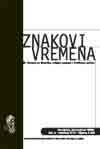Integralni pregled procesa tranzicije - tranzicija u Bosni i Hercegovini
Integral overview of transition process - transition in Bosnia and Herzegovina
Author(s): Adnan EfendićSubject(s): Economy
Published by: Naučnoistraživački institut »Ibn Sina«
Summary/Abstract: The command economy and social ownership have not withstood the historic battle with private ownership. The historical error made will be rectified in the process of transition. This is a very complex dynamic process that will enable the return of private ownership, the development of new infrastructure, a more efficient market and the democratic institutions appropriate to a multi-party parliamentary democracy. In the past decade countries in transitions have seen very different trends in macro-economic performance. What was inevitable for every country at the beginning of the transition process was a greater or lesser drop in output, a rising inflation rate, an increase in fiscal deficit, and general macro-economic disequilibrium. All this resulted in recession during the first three to four years. Emergence from recession depends on numerous factors for each individual country. The general conclusion can be drawn, however, that the countries of Central and Eastern Europe were able to put the recession behind them more quickly than the Commonwealth countries. Transition in Bosnia and Herzegovina is an integral part of the overall process of transition. The war left its own mark, so that these reforms have seen a complete turnaround from the situation at the outset. In the post-war period, without doubt the greatest progress has been seen in the monetary sector. A stable common currency has been introduced in which there is public confidence. Inflation is minimal. However, the deficit is rather high, and long-term measures will have to be taken to finance it. Small-scale privatization has begun, and large-scale is due to begin soon. Great attention must be paid to creating an environment favourable to foreign investors to attract investment funds and remedy the rather poor economic situation of the country. The possibility of an economic recession cannot be excluded unless positive changes in stabilizing the economy and the political environment are achieved. This process is not a simple one, but with sufficient will, knowledge and endeavour, positive long-term results for Bosnia and Herzegovina are to be expected.
Journal: Znakovi vremena - Časopis za filozofiju, religiju, znanost i društvenu praksu
- Issue Year: 2000
- Issue No: 9-10
- Page Range: 251-263
- Page Count: 13
- Language: Bosnian

